People Who Have The Same Friends From Childhood Did These 11 Things Right
Lifelong friends don't just happen by accident.
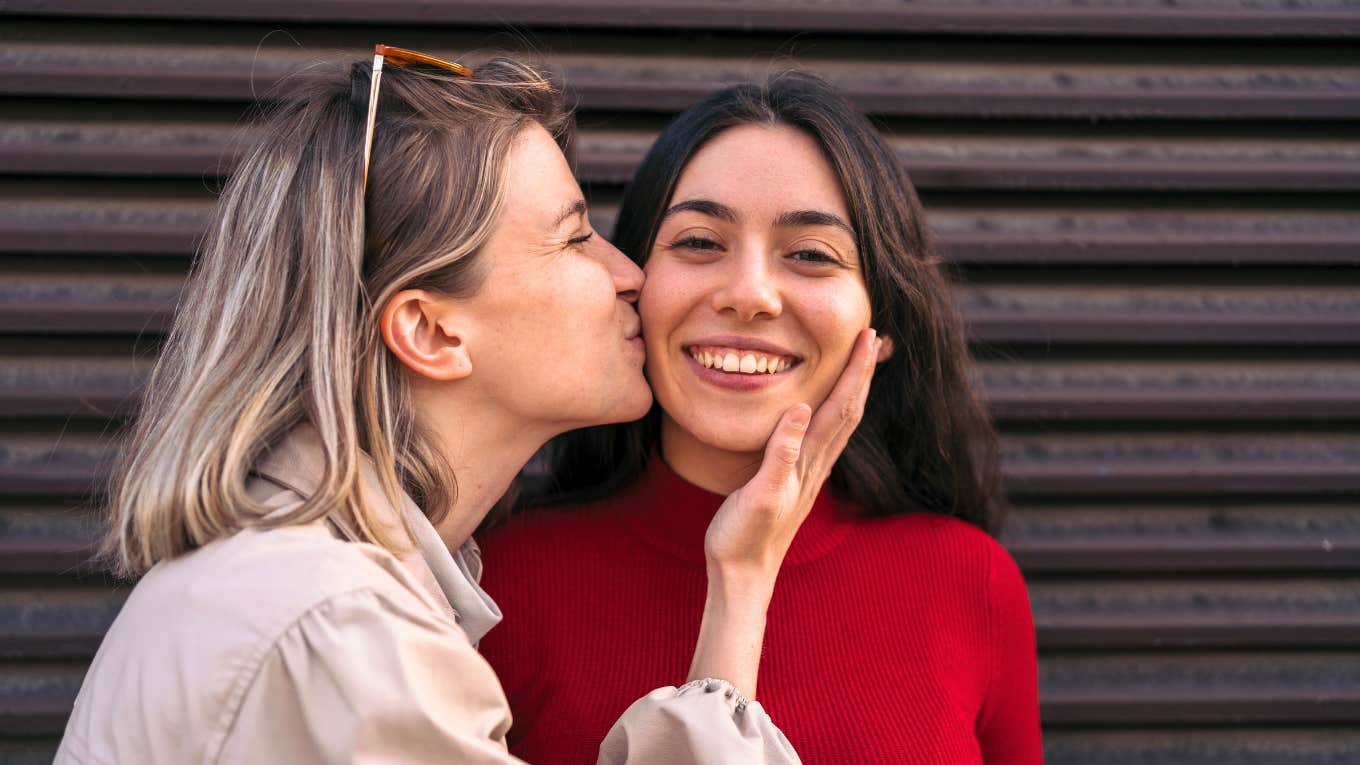 pedro7merino | Shutterstock
pedro7merino | Shutterstock Maintaining a friendship from childhood is rare, but not impossible; all it takes is for both of you to make an effort. While many of us drift apart from our early companions due to time, distance, and life changes, some people manage to hold onto those deeply rooted connections for decades. Their secret is that they make time for their friends and don't allow petty disagreements to get in the way of their friendship.
What separates a short-term friendship from a lifelong one is consistency. These are the people who've stood beside you through the chaos of growing up, the milestones that shaped you, and the moments you swore you'd take to the grave together. They know your history, your secrets, and exactly who you were before life got complicated — and they love you for it.
People who have the same friends from childhood did these 11 things right:
1. They put connection (not convenience) first
 Dusan Petkovic | Shutterstock
Dusan Petkovic | Shutterstock
People will go through friends based on how they feel and what they can get from them, rather than focus on how strong the connection truly is. Real friends will stick with you for years when they feel like your connection is stronger than others.
True friends wouldn't care that you didn't have a car, but instead ride public transportation with you. Not because they don't want you to feel bad, but because they know that the two of you are going to have a blast doing this experience together.
Childhood friends, in particular, already understand how you grew up both socially and economically. There is no worry of feeling shame or being ridiculed because you have less than they do. With childhood friends, your mental health remains more positive because they know you inside and out.
That kind of acceptance leaves a lasting impact on your mental health.
2. They adapted to life changes together
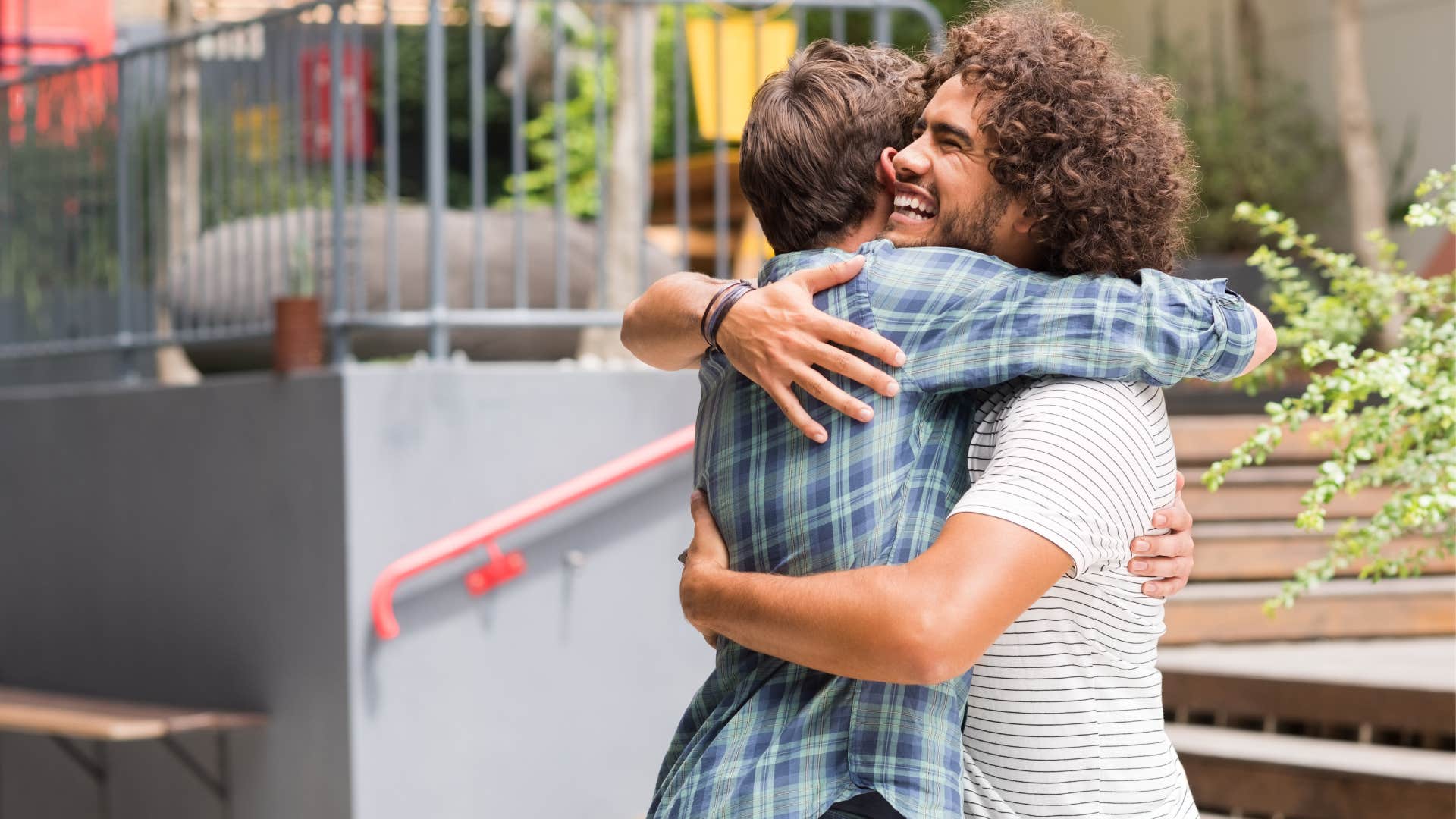 Ground Picture | Shutterstock
Ground Picture | Shutterstock
No one can prepare you for the massive changes that happen in your life, but something that is always consistent is your friends from childhood who stood by your side through the most important moments of your life. Whether they were heartbreaking, like losing a family member, or uplifting, like relocating to a better neighborhood, these friends never let you down and stayed dependable.
During your lifespan, you will make many friends for different reasons, so to keep someone for decades is no easy feat. As we get older, our friendship circles shrink due to various factors, but losing touch with someone for years and then reconnecting as if nothing has changed is a truly magical feeling. It's as if you've physically aged, but when you reunite, you revert to a kid-like state.
3. They stayed authentic
 PeopleImages.com - Yuri A | Shutterstock
PeopleImages.com - Yuri A | Shutterstock
Embracing your authentic selves is what gravitated you to your childhood friends. Growing up, all of you went through the same pre-pubescent phase together, experiencing some of the strangest times of your lives. You learned, grew, and changed side by side. That kind of authenticity is rare to find when seeking friendships with others.
Now, finding friends has to do more with compatibility and vibes than actually experiencing life together. That chemistry that you feel with a new person is just your old self telling you how much it misses how things used to be in your childhood. While these new people can fill that void, it won't be the same as it used to be.
So, if you have a childhood friend whom you still talk to, then be happy that you still have at least one of the realest people in your corner.
4. They showed up when it mattered
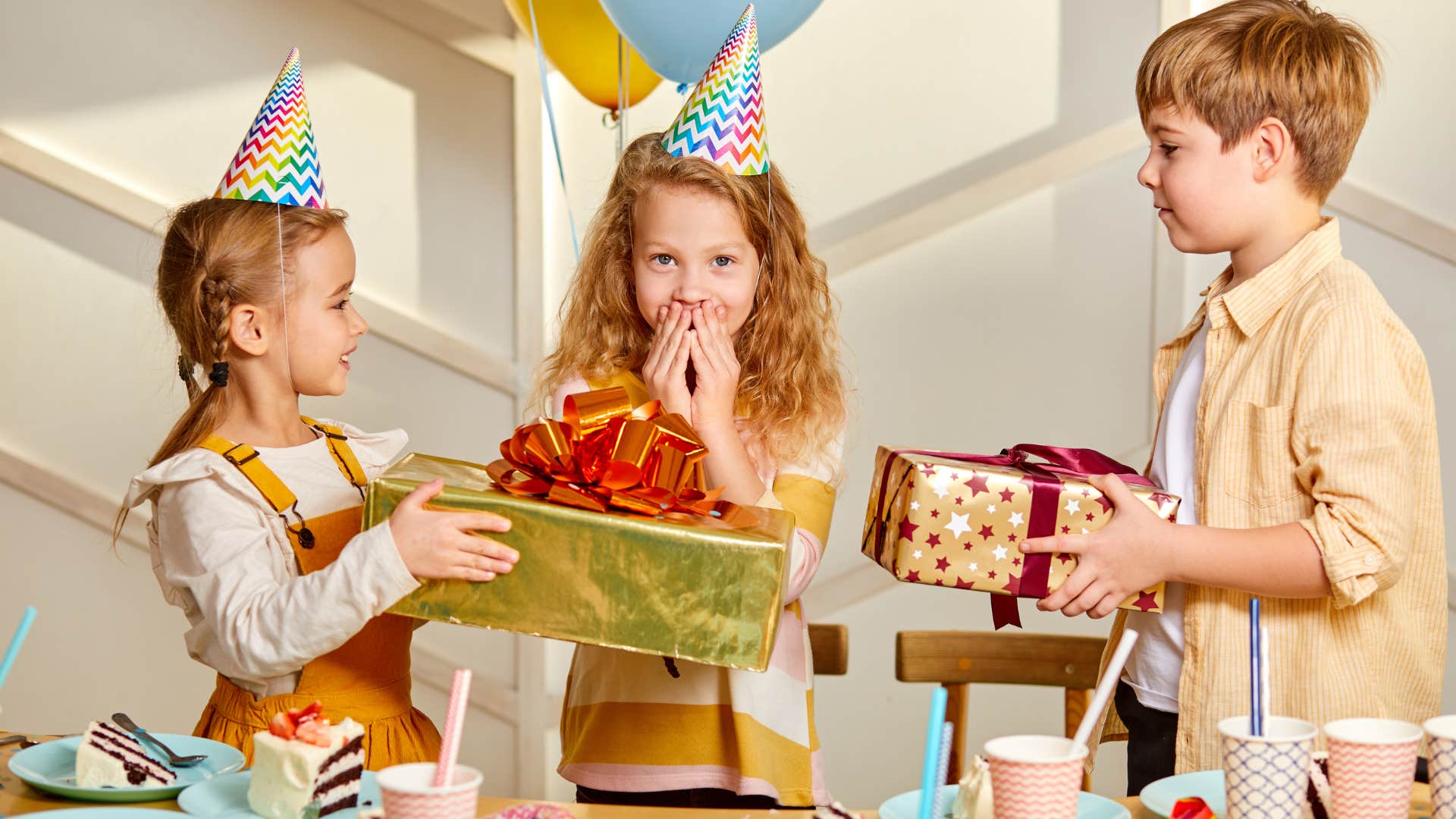 Roman Chazov | Shutterstock
Roman Chazov | Shutterstock
As a child, the one thing that separated our real friends from our fake ones was whether or not they showed up to our special events. Whether it was the birthday party of our dreams or a fun sleepover, childhood friends showed up because they cared.
Their presence meant more than any gift or game they brought. Not only did these experiences bond us for life, but we also often returned the favor by celebrating with them or visiting their homes instead.
These moments were more than a simple event; it was a chance to remember important details about them and show them that you care for them. Not only did we get to know each other better, but it also showed us our first taste of what reliability in friendship looks like.
5. They talked through the hard stuff
 Andrey Arkusha | Shutterstock
Andrey Arkusha | Shutterstock
Many are scared of their childhood friend who has a reputation for being the blunt one. While many people think they are mean, their friends tend to find them to be the realest people in the world. They're not going to sugar coat bad news to you and will actively hold you accountable for your actions if they feel like you are misbehaving.
Even when the two of you get into a serious argument, they will be so honest that it might seem a little unkind. There's a difference between being honest and being kind during a serious conversation. Balancing honesty with compassion rather than choosing one over the other is the only way to solve a misunderstanding. Not only does the blunt friend know this, but they are trying to teach you to stand up for yourself, even if it comes from them. Trust me when I say that they will be proud of you when you finally do.
6. They kept making new memories
 BongkarnGraphic | Shutterstock
BongkarnGraphic | Shutterstock
People who have the same friends from childhood don't allow distance to change the way they hang out with their friends. They actively choose to create new memories with old friends rather than replace them with new ones. Nothing would be good about replacing everything you've ever known with the unknown.
You and your friends could reminisce about the good old days, but just as equally joke about the pictures that you took at the mall together that day. It's refreshing to have someone who is consistently in your life for long periods of time. Not only will you feel more stability, but your memories will be filled with old and new moments that are unforgettable.
7. They supported each other's growth
 PeopleImages.com - Yuri A | Shutterstock
PeopleImages.com - Yuri A | Shutterstock
Not only do you make new memories with your childhood friends, but you also support them through their toughest moments. It doesn't matter if it was a heartbreak or helping them find a new job, friends help each other through these times. The more they experience life, the more they grow together.
Friendships aren't just nice to have; they are biologically necessary for healthy development. Having friends who support you helps regulate your brain's stress systems, like cortical levels, and balances them out. It might seem odd to have someone around for so long who has no romantic feelings for you, but as humans, we need that platonic connection.
8. They valued loyalty over popularity
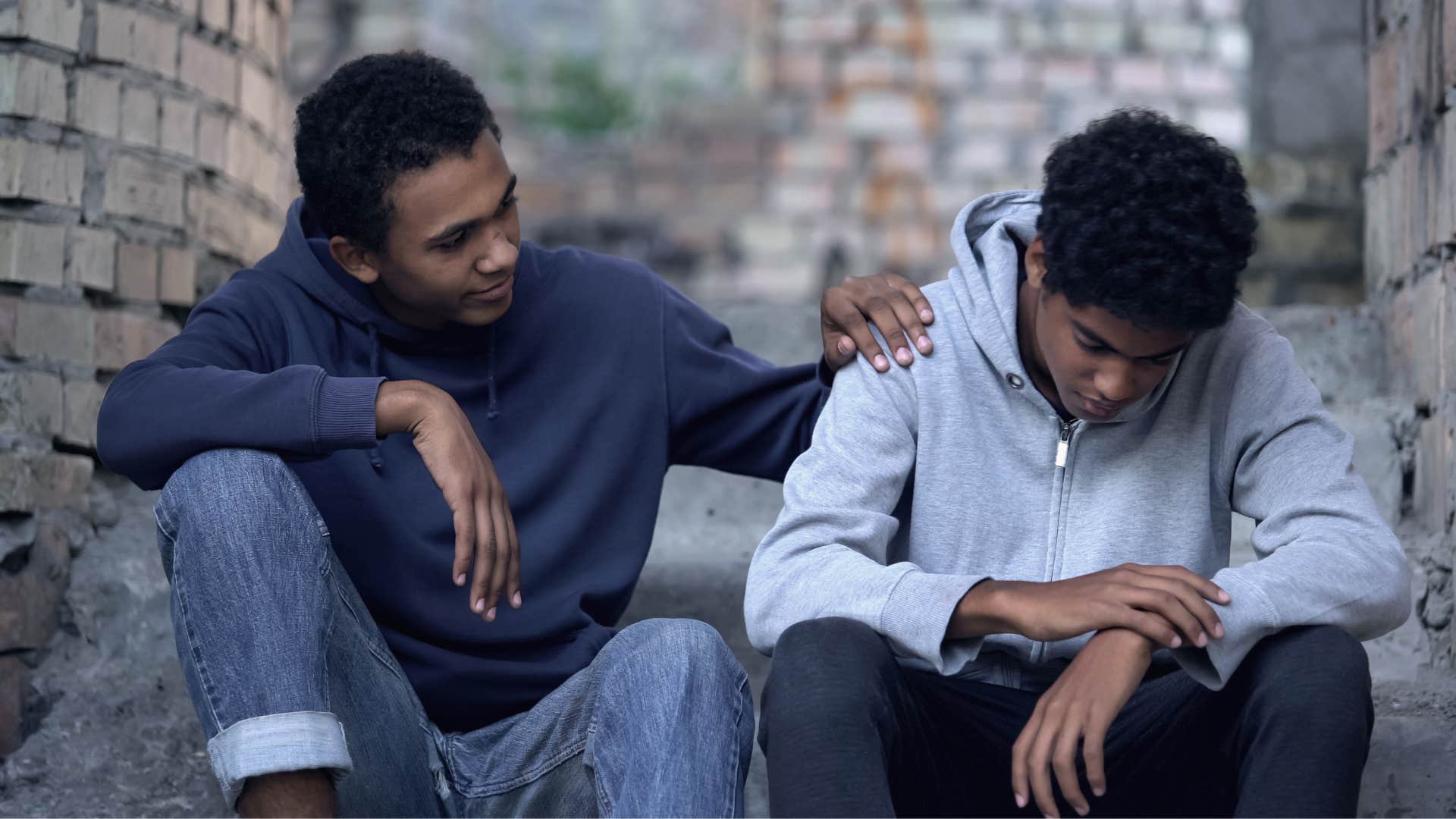 Motortion Films | Shutterstock
Motortion Films | Shutterstock
Loyalty is subjective when it comes to friendships, but we can all agree that when it is compared to popularity, then having a friend stick by you rather than selling you out is a true friend indeed. Childhood friends who go against the status quo for you will always have your back no matter what. They stood up to others who were bullying you as kids, and when it came time to choose, they stayed by you even though it could cause them social suicide.
They saw something that most others couldn't at the time, which was that having a loner friend meant more to them than having popular ones. While you might have taken it as an insult because you thought that they didn't see you as competition, it was actually because they had been burned by those types of friends before. They knew better than anyone how those people think and wanted to protect you from it all.
9. They didn't let ego take over
 Monkey Business Images | Shutterstock
Monkey Business Images | Shutterstock
Being part of a large group of childhood friends can cause a little bit of competition as all of you grow older, but what makes your group solid is that none of you let ego get in the way of your friendship. As our egos mature, we become better at managing conflicts and understanding social nuances that make us all different.
Constantly having a friend being right during a conversation can get pretty annoying. Friends want to be around like-minded people who celebrate each other's wins and let go of petty arguments. Childhood friends have been through too much to split up now over something so minor, just to show the rest of the group how right they are.
10. They made space for each other
 Bogdan Cherniak | Shutterstock
Bogdan Cherniak | Shutterstock
Holding space for someone you love means letting them come to you when they are ready rather than forcing them to tell you everything. Childhood friendships last so long because it takes years for someone to get to know another person and their family dynamic fully. Some people didn't come from the best homes, and revealing that to a friend from childhood was tough but necessary.
Telling them on their own time allowed childhood friends the space that they needed to come to terms with their situation and seek assistance. As children, your home might have offered refuge or a safe space for them to behave like children rather than be in survival mode. In return, they provided the only thing that they could, which was space for you to deal with your problems as well.
11. They embraced each other's weirdness
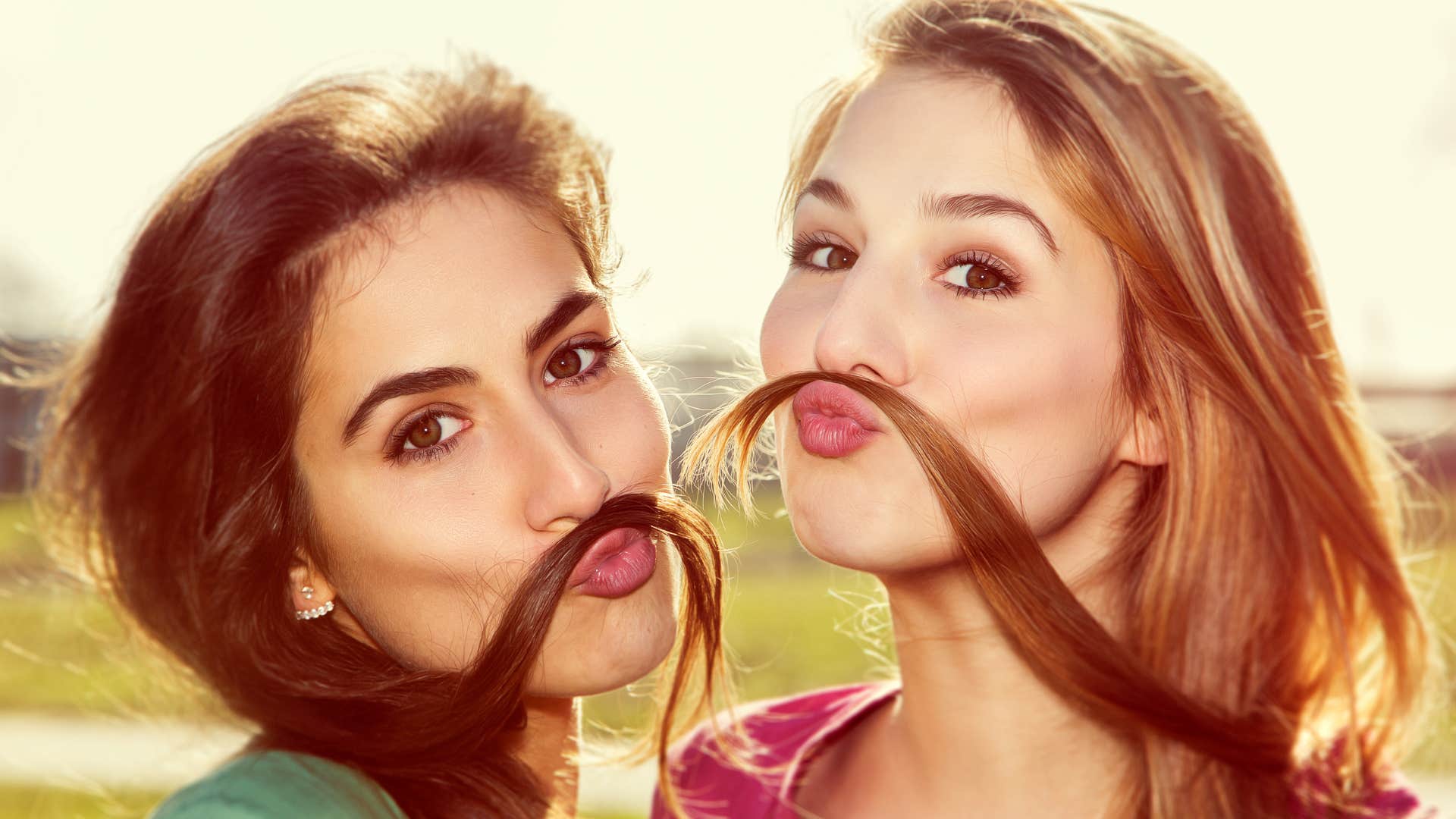 lassedesignen | Shutterstock
lassedesignen | Shutterstock
Part of a strong friendship is the ability to be your authentic self around them, which includes your weird side. Everyone has a weird side to them that makes others embarrassed to be seen around them. What separates a childhood best friend from a newer best friend is that the person from childhood knew you during a time when you didn't even know who you were going to be yet.
This unfiltered version of you might have been embarrassing, but they don't care, and that's why the friendship has lasted this long. True best friends not only act weird together but also do weird things together. Using your hair to make silly faces or borrowing each other's clothes might seem strange to outsiders, but it's just a natural thing you weirdos do daily.
Sylvia Ojeda is a screenplay writer and journalist who covers self-help, relationships, culture, and human interest stories.

